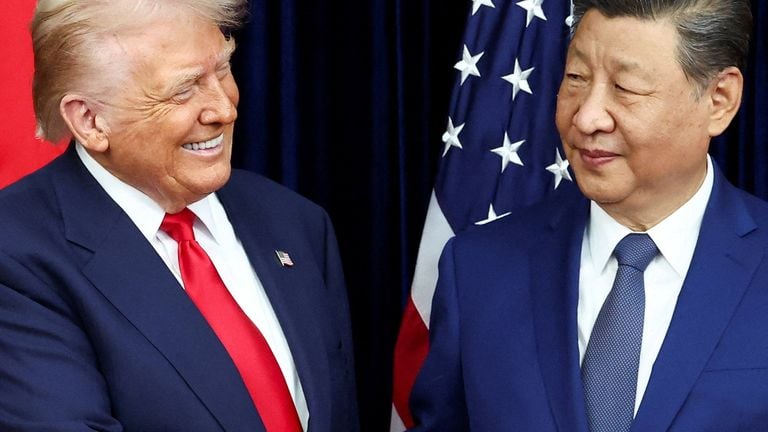Asia Markets Fall as Trump–Xi Deal and BOJ Hold Stir Global Sentiment
Asian shares slipped on this week after the United States and China announced a trade pact that investors deemed less impactful than expected.
The deal included tariff rollbacks, agricultural commitments, and rare-earth supply guarantees.
Meanwhile, the Bank of Japan left rates unchanged, adding to cautious global sentiment. The MSCI Asia-Pacific index fell 0.5% while U.S. futures were mixed.
Analysts said the muted reaction reflected doubts about long-term enforcement of the trade deal.
Markets had priced in much of the optimism earlier, leaving little room for upside. Japan’s Nikkei dipped 0.4% as exporters weakened, and the yen steadied against the dollar.
Investors remained wary of global demand, with many expecting limited relief for supply chains.
Oil and metals prices also softened amid uncertain manufacturing outlooks.
With the U.S. Federal Reserve likely to keep rates steady, traders are now watching economic data for clearer direction.
The mood across Asia was one of guarded optimism rather than celebration.
Technology and auto stocks were hit hardest, as investors assessed the impact of ongoing chip restrictions.
While the deal may cool tensions, it does not resolve deep structural issues between Washington and Beijing.
Economists warned that both nations could revert to tariffs if disagreements re-emerge.
Overall, investors are bracing for short-term volatility. Focus now turns to China’s upcoming PMI data and the U.S. jobs report.
The next phase of trade diplomacy will determine whether this relief lasts—or merely delays another round of global uncertainty.
Source: Reuters.
news via inbox
Get the latest updates delivered straight to your inbox. Subscribe now!




